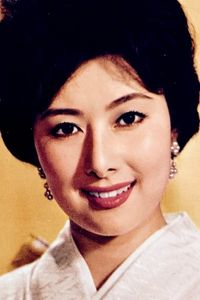Yamamoto Fujiko, a renowned Japanese actress, was born on December 11, 1931, in Nishi ward, Osaka. She rose to prominence in the 1950s, winning the inaugural Miss Nippon Grand Prix in 1950 and going on to star in over 100 films between 1953 and 1963. Her impressive filmography includes works by esteemed directors such as Yasujirō Ozu, Kon Ichikawa, Shirō Toyoda, and Kōzaburō Yoshimura.
Yamamoto's early success was largely due to her striking features, which were considered "noble" and epitomized the classic ideal of Japanese beauty. Her roles often featured her in period dramas, where her elegance and refinement were showcased. In contrast, her less frequent modern roles, such as those in Ozu's Equinox Flower and Ichikawa's Being Two Isn't Easy, were often shot in close-up, emphasizing her "movie star" presence and distinguishing her from the films' contemporary narratives.
In 1963, Yamamoto's contract with Daiei Film came up for renewal, and she demanded changes. However, the studio's head, Masaichi Nagata, refused her demands, leading to her dismissal. Furthermore, Nagata and other major film studios, as part of the Five-Company Agreement, conspired to prevent Yamamoto from finding work elsewhere. Undeterred, Yamamoto continued to act, appearing in the TV series Toshiba Sunday Theatre and on Fuji TV. Despite her continued success on stage and television, she has not appeared in a film since her departure from Daiei.























